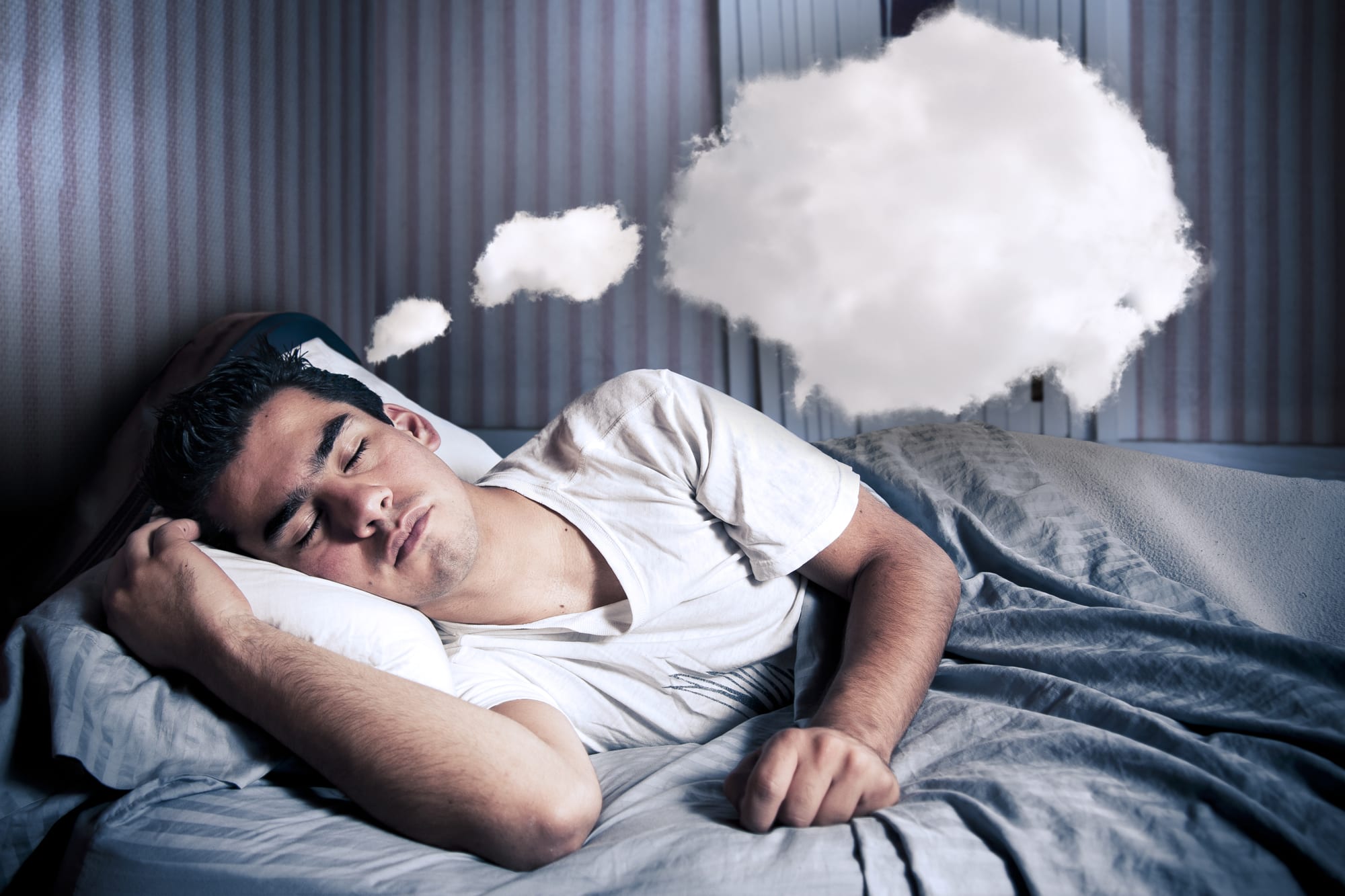Most individuals dream every night, yet many of them wake up with little or no memory of their dreams. There are numerous possible causes for why someone can forget their dreams. Some people may only remember fleeting, hazy details from a dream, while others have no memory at all.
A dream is a collection of images, ideas, and feelings that surface during sleep. Although it is a universal experience, dreaming is not well understood. For centuries, philosophers and scientists have been enthralled by dreams. The scientific world has made great progress in understanding the physiology of sleep, but has made far less progress in comprehending dreams and their purposes.
Why do some individuals forget their dreams is a subject that this article will seek to address. When the precise cause is unknown, scientists have obtained some understanding of how memory works while we sleep, which has led to various theories that could help to explain our peculiar forgetfulness.
You are Awake, but is your Hippocampus?
According to a 2011 study , not all of the brain’s areas shut down at the same time when we go to sleep. The hippocampus, a curving structure located inside each brain hemisphere and essential for transferring information from short-term memory to long-term memory, is one of the last brain regions to go to sleep, according to research.
The hippocampus may very well be the last part of the brain to awaken if it is the final part of the brain to fall to sleep, according to neuroscientist Thomas Andrillon of Monash University in Melbourne, Australia. Thus, there is a window when you may awaken with a dream still fresh in your short-term memory, but because the hippocampus is not yet completely awake, your brain is unable to retain that memory, according to Andrillon.
Even though this may help to explain why dream memories are so transient, it doesn’t always follow that your hippocampus has been dormant all night. In reality, this area is very busy while we sleep, and it seems to be consolidating and storing current memories rather than listening for incoming new experiences.
According to some research, the hippocampus sends information to the cortex during specific stages of sleep but does not receive any, according to Andrillon. This one-way communication would enable the hippocampus to convey memories to the brain’s cortex for long-term storage, but the hippocampus would not be able to register new information.
The brain may require at least two minutes after awakening to fully activate its capacity for memory encoding. Researchers in France tracked the sleep habits of 18 people who claimed remembering their dreams virtually every day and 18 others who reported remembering their dreams only occasionally as part of a 2017 study that was published in the journal Frontiers in Human Neuroscience. The researchers discovered that strong recallers woke up more often during the night than low recallers of dreams. The average duration of these midnight awakenings was 2 minutes for high recallers, whereas low-recallers’ awakenings lasted for an average of 1 minute.
Neurochemical Soup
Changes in the levels of two neurotransmitters, acetylcholine and noradrenaline, which are crucial for memory retention, are also associated with our poor capacity to encode new memories while we sleep. Acetylcholine and noradrenaline diminish quickly when we sleep. Then, as we transition into the rapid eye movement (REM) stage of sleep, which is when the most vivid dreams take place, something unexpected happens. Acetylcholine recovers to alertness levels during this phase, while noradrenaline remains low.
According to a 2017 study in the Journal of Behavioral and Brain Sciences, some hypothesize that this particular combination of neurotransmitters may be the cause of why we forget our dreams, yet scientists have not yet solved this puzzle. A rise in acetylcholine awakens the cortex to a state resembling awareness, whereas a fall in noradrenaline makes it harder to remember our mental adventures during sleep.
Sometimes your Dreams are just not Memorable
Do you recall your thoughts this morning when you brushed your teeth? We constantly have random thoughts in our heads, but the majority of them are ignored since they are unimportant. According to a Scientific American article by the late dream researcher Ernest Hartmann, a professor of psychiatry at Tufts University School of Medicine, mundane dreams, in particular, may be treated by the brain as meaningless daydreams that are not worth remembering.
However, dreams that are more vivid, intensely emotional, and coherent seem to be more easily remembered. This is possibly because they produce greater awakening and are simpler to store because to their ordered narrative, according to Andrillon.
A few scientists have also observed that certain physical factors contribute to the ability to forget dreams. The factors are;
1. Stress
Considered one of sleep’s deadliest adversaries, stress has been shown in studies to both disturb and impair REM sleep as well as increase the number of nighttime awakenings. These things can make it harder to remember your dreams.

2. Your Diet
That’s true, your diet has an impact on your body even when you’re asleep. According to research, a diet high in fruits, vegetables, fiber, and low in vegetable oils promotes restful sleep.

3. Trauma
Trauma is similar to stress, but considerably more severe. In an effort to forget upsetting nightmares, this might result in insomnia as well as a complete suppression of dream recall.
4. Substances
Unfavorable news for anyone who enjoys a glass of wine before bed: your sleep will probably be disrupted. Alcohol use before bedtime and marijuana use have been shown to have a deleterious impact on REM sleep and dream recollection.
5. Sleep Disorders
A person’s REM cycles can be adversely impacted by everything from insomnia to sleep apnea to narcolepsy.
6. Your Lack of Concentration
Author and lucid dreaming specialist Robert Waggoner noted that some people are just more interested in dreaming and studying the dream world than others.
There are a few techniques to attempt if you’re determined to enhance your dream recall. The Harvard Medical School associate professor of psychiatry Robert Stickgold advises drinking water before bed since it will lead you to wake up in the middle of the night to use the restroom. According to Stickgold, these “middle-of-the-night awakenings are commonly accompanied by dream recall.”
Some studies have suggested that keeping a dream journal and frequently telling yourself before night that you want to remember your dreams may improve your chances. Hold onto that flimsy dream memory when you wake up by keeping your eyes closed, remaining still, and playing back the dream memory until your hippocampus catches up and properly stores the information.
